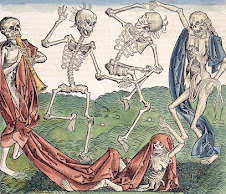Tuesday, February 5, 2008
Blog Assignment #3
I have been intrigued by the role of earthly wealth in the world that Gregory writes about. Professor Glenn is always asking "but why did Beowulf do this?" "what was beowulf's reward?" etc, etc, always looking for the answer of treasure. Material wealth obviously plays an important role in the logic of this world. But isn't that contradictory with what we know of the early Christian religious tenets? In Book One of the Histories, chapter 13, Gregory describes King Solomon and his relationship with material wealth and God..."He [Solomon] scorned earthly riches and asked for wisdom instead...It was Solomon who, in the name of the Lord, built the Temple with wonderful workmanship, using much gold and silver...no comparable building had ever been constructed in the world." This paragraph is interesting because it seems to imply that Solomon's reward for scorning earthly riches was more earthly riches than anyone else on earth. Through other passages in Gregory and our reading of Beowulf we can see that treasure was a central part of culture. But how did these cultures, the Roman and the Anglo-Saxon as understood by Gregory of Tours, reconcile this cultural facet with their clear knowledge of Christian religious pillars?
Subscribe to:
Post Comments (Atom)

No comments:
Post a Comment